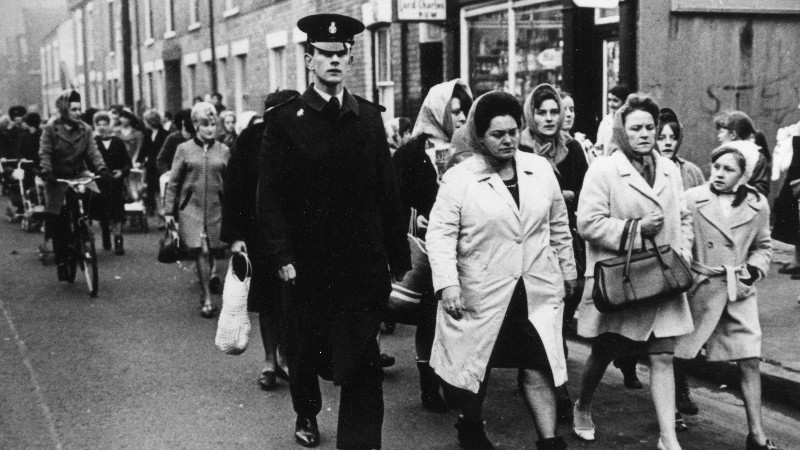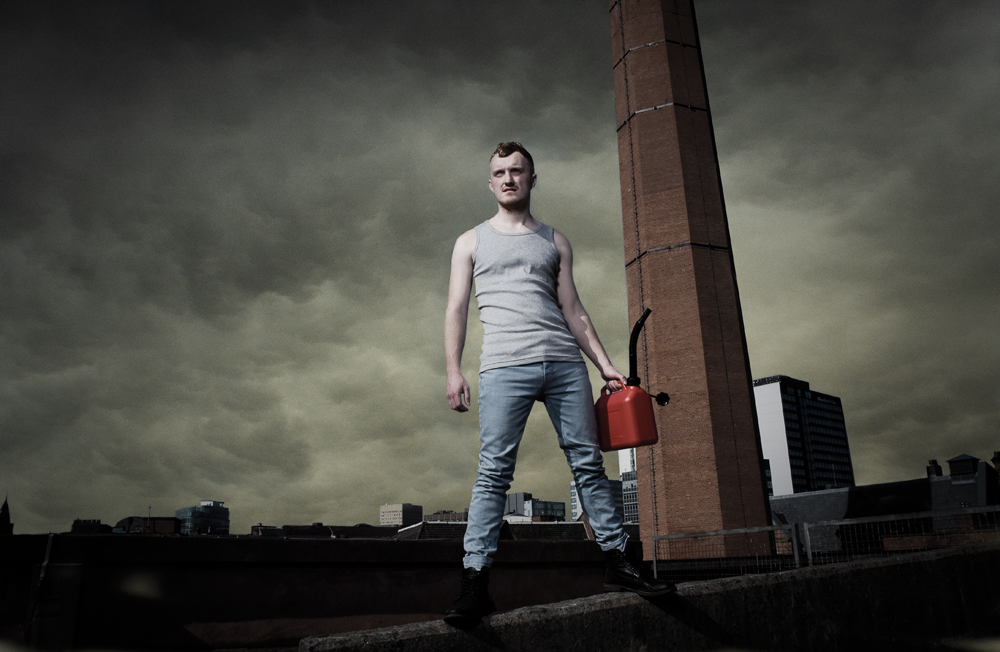Brian W. Lavery, author of The Headscarf Revolutionaries: Lillian Bilocca and the Hull Triple Trawler Disaster, writes for Northern Soul about a new BBC documentary, Hull’s Headscarf Heroes.
Actor, writer and comedian Lucy Beaumont narrates this tale of her native city’s 1968 Triple Trawler Disaster – and the subsequent uprising led by fighting fishwife Mrs Lillian Bilocca that made international headlines.
After leading hundreds of women to march on the trawler owners, the woman the media dubbed ‘Big Lil’ led a delegation to Westminster to complete a whirlwind six-day campaign that comprehensively changed safety at sea and saved countless lives to come with one of the most successful civil protest actions of the 20th century.
In the opening months of 1968 in what became known as the Dark Winter, three trawlers – St Romanus, Kingston Peridot and Ross Cleveland – sailed never to return. One of the ships had no radio operator.
Fifty-eight men died. The city’s Hessle Road fishing community was devastated and became the focus of the world’s media.
 One miracle survivor, Harry Eddom, the mate of the Ross Cleveland, was discovered 36 hours after his ship sank off Iceland’s coast in one of the worst storms in living memory. Eddom fought his way through Arctic wastelands to be found near-dead by a shepherd boy.
One miracle survivor, Harry Eddom, the mate of the Ross Cleveland, was discovered 36 hours after his ship sank off Iceland’s coast in one of the worst storms in living memory. Eddom fought his way through Arctic wastelands to be found near-dead by a shepherd boy.
It is against this backdrop that Hull’s Headscarf Heroes, directed by Steve Humphries from the aptly named production company Testimony Films, allows that community to bear its witness and tell of the horror and aftermath of the century’s biggest peacetime fishing disaster.
In what could easily have strayed into mawkish sentimentality, Humphries’ simple presentation, coupled with direct, honest testimony, makes for a powerful, heart-breaking and inspiring film. The occasional emotional crack in the narrator’s voice adds to the story’s power. However, for me the voices that stood out most were those of the Hessle Road women.
Historians and writers like my distinguished colleague Dr Alec Gill and I were consultants on this film, setting scenes and making informed comments. But it is not the professional ‘talking heads’ who carry this documentary, but the open hearts of women like Denise Hilton and Jean Shakesby, who lost their husband and father respectively at sea in the 1960s. No writer nor actor could have better expressed these women’s stories.
Mrs Bilocca’s octogenarian sister Minnie King, a trawler skipper’s widow, gives great insight into the woman who led the women that I was to later dub The Headscarf Revolutionaries in my 2015 book of the same name. And Lillian’s daughter Virginia McKenzie, who was just 17-years-old at the time, told how she saw the rage that sparked her mother’s actions.
Another powerful vignette from Humphries’ masterful piece was Mrs Bilocca’s son Ernie, then a 21-year-old deckhand, who struggled to compose himself when he told how he nearly lost his own life when his ship fought in the Arctic storms that claimed the Ross Cleveland.
Hull’s Headscarf Heroes lays bare a community’s grief, illustrates its resilience, and tells how four women – Lillian Bilocca, Yvonne Blenkinsop, Chrissie Smallbone (later Chrissie Jensen) and Mary Denness – took on the establishment and won, at considerable personal cost as the last surviving ‘Headscarf Revolutionary’ Yvonne describes in her recollection of the violence, misogyny and danger these brave women faced in their fight to stop the industry that gave them their living from killing their men. One line from Yvonne Blenkinsop’s testimony sums up not only the iniquity of the times but also what drove these women to fight and win their battle to improve safety in the most dangerous industry on earth. 
“People should not be allowed to put money before people’s lives.”
It is estimated that, across a century, more than 6,000 men sailed from the city’s fish docks never to return. The thousands more future lives saved by the fighting women of Hessle Road can never be accurately estimated. Hull’s Headscarf Heroes is a both tribute and testament to that.
By Brian W. Lavery
Main image: Lillian Bilocca leads hundreds of Hessle Road women in a march to the trawler bosses’ offices to demand better safety at sea and radio operators for all ships.
Hull’s Headscarf Heroes is on BBC Four, February 5 at 9pm
 Brian W. Lavery is a Scottish writer, journalist and tutor living in Hull. He is the author of The Headscarf Revolutionaries (Barbican Press 2015) about the fishwives’ uprising that followed the 1968 Hull Triple Trawler Disaster. It is now optioned by and in development with RED Productions, Manchester. His latest book, The Luckiest Thirteen, (Barbican Press 2017) is about a battle to save the survivors of a Christmas Day explosion that ripped through super-trawler St Finbarr on the Grand Banks in 1966. He was also historical consultant to Hull’s Headscarf Heroes – and has published short fiction and poetry with Larkin Press and Planet Publications (Wales).
Brian W. Lavery is a Scottish writer, journalist and tutor living in Hull. He is the author of The Headscarf Revolutionaries (Barbican Press 2015) about the fishwives’ uprising that followed the 1968 Hull Triple Trawler Disaster. It is now optioned by and in development with RED Productions, Manchester. His latest book, The Luckiest Thirteen, (Barbican Press 2017) is about a battle to save the survivors of a Christmas Day explosion that ripped through super-trawler St Finbarr on the Grand Banks in 1966. He was also historical consultant to Hull’s Headscarf Heroes – and has published short fiction and poetry with Larkin Press and Planet Publications (Wales).











